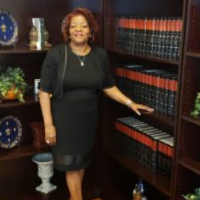 Henry County, GA Estate Lawyers
Henry County, GA Estate Lawyers
Sponsored Law Firm
-
 x
x

Click For More Info:
-
Goldberg & Cuvillier, P.C.
3469 Lawrenceville Highway Suite 102 Tucker, GA 30084» view mapEstate Law Where Every Client Matters
Goldberg & Cuvillier, P. C. is a law firm located in Tucker, Georgia in the Northlake area. The firm represents clients in civil cases all over the state of Georgia and metro Atlanta.
800-581-3790
Sponsored Lawyers
1-10 of 11 matches
Divorce & Family Law, Bankruptcy & Debt, Divorce, Immigration, Estate
Attorney Chalcia Rainford is a native of Jamaica, West Indies, who has practiced law since 1994. Mrs. Rainford earned her J.D. from John Marshall Law School of Atlanta, Georgia. She also studied in London, England at the Lay Cox College and is a professional registered nurse. Her success does not stop there; Attorney Rainford owns Eccentral, Inc., which is a professional nursing employment agency. She is known for being very intellectual and detail oriented.
(more)


 Laurene Cuvillier Tucker, GA
Laurene Cuvillier Tucker, GA AboutGoldberg & Cuvillier, P.C.
AboutGoldberg & Cuvillier, P.C. Practice AreasExpertise
Practice AreasExpertise

